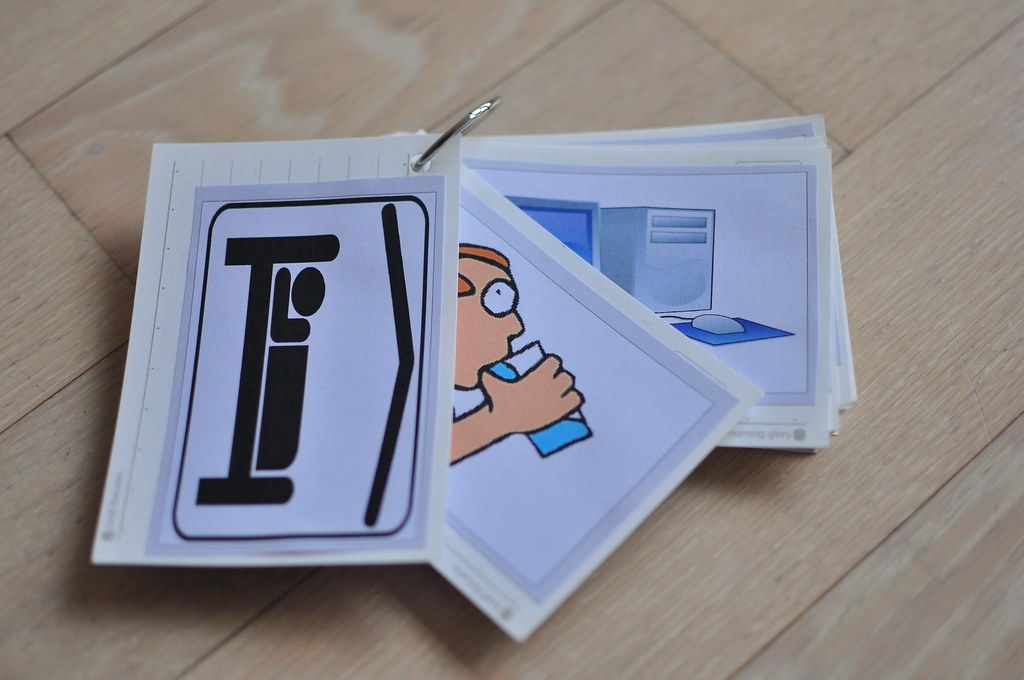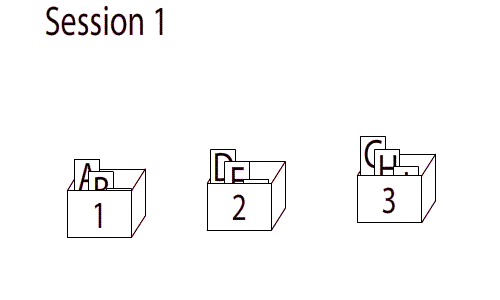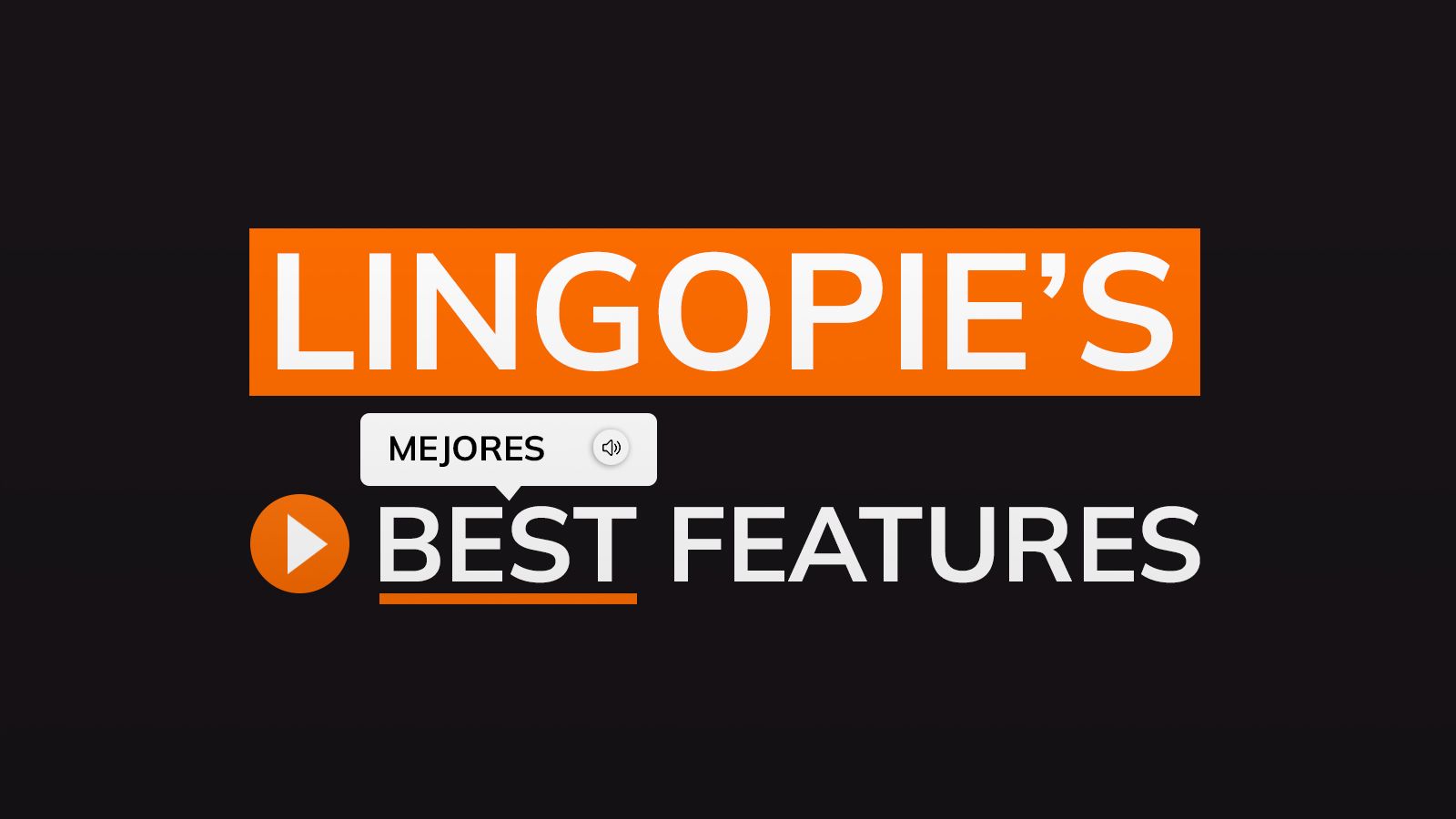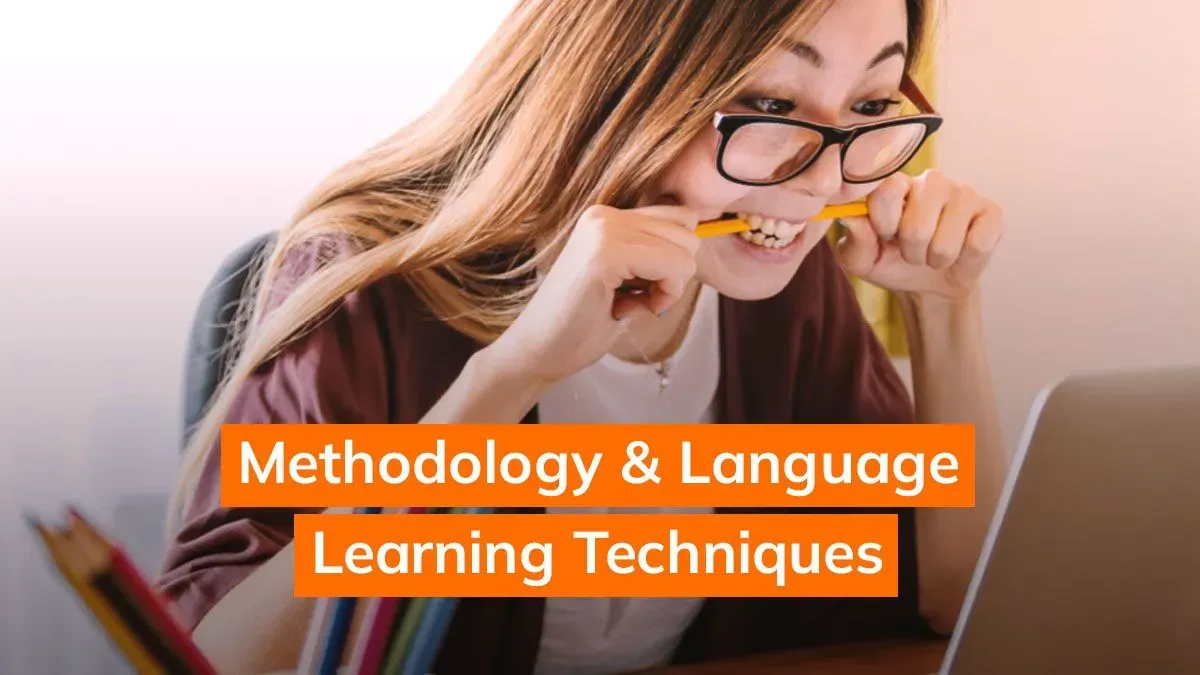Flashcards are one of the most popular study techniques for med students, future lawyers studying for the bar – and our favorite demographic, language learners. They predate oddly-intrusive language games, hypnosis, and night-long Red-Bull-fueled study marathons. Their popularity and simplicity has turned into somewhat of a curse: it’s hard not to immediately assume that something so basic could really be good.
And yet, sometimes the popular methods are popular for a reason. Is that the case here? Are flashcards effective? The answer is yes – but only if you are smart about them.
Before you let yours collect dust among all the other piles of pretty stationary, let’s take a closer look at how they work, and how you can make them better.

What’s the Point of Flashcards for Language Learning?
Among people trying to learn a language, flashcards are often used to help with memory and vocabulary retention. Strictly speaking, they are a type of “practiced information retrieval”.
This is a technique for active learning used to move knowledge from your recent memory (such as the vocabulary list you just had in front of you) into your long-term memory.
The proponents of retrieval practice say that every time you force your mind to recall a piece of information that is not in front of you, you will be shortening the length of time required to do this in the future.
When you look at it this way, a flashcard set is simply a practical way to hide the knowledge you are trying to recall. Instead of carrying a whole dictionary with you on the bus, you just need a small set of square-shaped pieces of paper.
So That’s It?
Most people use flashcards in pretty repetitive manner: take the one on top of the deck, check out the prompt (for example, the word “tree”) and then flip it to get “arbol”, “arbre” or the equivalent in your target language.
This quickly gets boring, and it won’t really provide you with much of a challenge. After a few days of doing this for an hour a day, most people just stop using them – and then, just like that gym membership from before the Pandemic, the method yields no results.
So what should you be doing instead?
11 Tips to Power up Your Flashcard Game
Just like any other high-tech tool, flashcards work better when paired up with a good strategy. And tasked by our supervisors to find the best way to make your language learning experience easier, we collected a few strategies to help you make the most of them.
1. Make Your Own
Yes, we all love the convenience of pre-made flashcard sets for your second-favourite app, or even store-bought, laminated decks. Check out this post about language learning apps.
However, there is a lot to be said for the old-school act of setting things to pen and paper. The process of identifying which words to use, plus writing down all these words in your brand-new piece of cardboard, will help kick-start the learning process.
2. Add Pictures
Languages have existed for at least 50,000 years, while writing has been around for less than 10,000. Your animal brain still considers letters to be a crazy new technology – but we are primed by evolution to interpret images and locations better.

So instead of just writing down “tree” again (you already know that word, anyway), why not draw a quick tree?
3. Start with the Native Side
For most people who are trying to learn a language online, understanding tends to come before retrieval. So there’s a good chance that, whenever you see the word arbre, you already understand that means tree.
But have you tried to remember arbre from scratch in the middle of a conversation?
When using your flashcards to quiz yourself, start with the side on your native language. Then pause, and make yourself remember the word in your target language.

4. Expand after the flip
After you flip each flashcard, don’t stop after reading the other side. After a while, your brain will disengage itself from the task and you won’t really be studying anymore.
Instead, say the word out loud and then use it in a sentence. For extra points, try to make that sentence a realistic one, or one that has some context. You can always borrow ideas from one of the characters from your favorite foreign TV show.
Don’t have a foreign TV show yet? Find some options here.
5. Take a Page from Feynman
Have you ever heard about the Feynman method?
Richard Feynman was a nuclear physicist, musician, polyglot, and Nobel Prize winner. He is the one who came up with the whole “explain like I’m five” trope. According to Feynman, the best way to learn something is to strip it down to its simplest terms, and then teach it to a child.

Now, we are not in the business of teaching nuclear physics, but this can still be useful for your flashcards. Sometimes, we add so many extra notes and marks on each flashcard – complex words, the gender, conjugations – in an attempt to be thorough. This makes them hard to read and recall.
Instead, test out your set by showing it to the closest 5-year-old.
6. Use Spaced Repetition
Spaced repetition is all the rage among learners these days. For once, this is an evidence-based technique that researchers have tested and controlled (but so is learning by watching subtitled TV).
The idea behind spaced repetition is to go through the newest or more difficult flashcards more often, and to go through the ones you have already mastered less often.
You can determine which ones are the “hard” ones through a complex algorithm that keeps careful track of every error you make… or you can simply put them into boxes.

7. Incorporate Audio Pronunciation
To fully grasp the nuances of a new language, consider adding an audio element to your flashcards. Record yourself or find native speakers pronouncing the words on your flashcards. This auditory component not only aids in correct pronunciation but also helps you develop an ear for the language's rhythm and intonation. When you flip a flashcard, listen to the pronunciation before repeating it aloud yourself. This auditory-visual reinforcement can significantly improve your language comprehension and speaking skills. Lingopie's flashcards have the feature to let the words be read out loud in the correct pronunciation.
8. Theme-based Flashcards
Instead of random word pairs, create themed flashcards. Group related words or phrases together based on topics like food, travel, or everyday conversation. This thematic organization helps you build a more comprehensive vocabulary within specific contexts. It also encourages you to think in the target language within those thematic frames, making it easier to recall relevant vocabulary during real-life conversations. Themed flashcards add structure to your language learning and create a more holistic language acquisition experience.

9. Mix Up Your Cards
Shuffle your flashcards regularly to avoid predictability. When studying, our brains tend to get accustomed to patterns, making it easy to guess the answer based on card order. By mixing up the cards, you introduce an element of surprise and challenge. This keeps your mind actively engaged and prevents you from relying on patterns or cues. It simulates a more real-life language experience where you must recall words and phrases in various contexts, ultimately improving your language retention and flexibility. So, don't be afraid to shuffle those flashcards and keep your learning dynamic.
10. Gamify Your Flashcards
Turn your language learning sessions into a fun game by setting goals and challenges for yourself. For example, you can time yourself as you go through your flashcards and try to beat your previous record each time. Create rewards for achieving milestones or tackling a certain number of flashcards within a session. You can also turn flashcards into a competitive activity by challenging a language-learning partner or friend. Adding an element of competition and gamification not only makes learning more enjoyable but also keeps you motivated and committed to your language learning journey.
Related content:


11. Incorporate Real-life Context
Whenever possible, include real-life sentences or phrases on your flashcards rather than just isolated words. This approach helps you learn how words are used in practical situations, making your language skills more functional. Additionally, try to use sentences from authentic sources like books, news articles, or dialogues from movies or TV shows. Understanding how words fit into real conversations adds depth to your language learning and prepares you for meaningful interactions in your target language. This is why Lingopie's flashcards are great because they show you how the words are used in the content.
To Sum Up
Flashcards are a great way to practice your vocabulary. They get an unfair bad rap for being boring and repetitive – but this is largely because many just don’t use their true potential. The tips we gave you here should keep them as an active task that can hold your attention.
To learn a language in a fun and engaging way try Lingopie in our 7-day free trial to see if it’s right for you. Lingopie makes the Flashcards for you based on the words you clicked during your watching sessions.
FAQs
Are flashcards a good way to study in general?
Yes, flashcards are generally considered an effective study tool, not only for language learning but for a wide range of subjects. They promote active recall, aid in memorization, and can be customized to suit your specific study needs, making them a versatile and valuable method of study.
Are flashcards effective for language learning?
Yes, flashcards are an effective tool for language learning. They help improve memory, vocabulary retention, and active recall, making them a valuable asset in mastering a new language. When used correctly with effective strategies, flashcards can significantly enhance your language learning journey.
Does Lingopie use flashcards in its language learning approach?
Yes, Lingopie incorporates flashcards as part of its language learning method. These flashcards are created from the words and phrases you interact with while watching series and movies, enhancing your vocabulary acquisition.


![Do Flashcards Really Work? Yes – Here’s How! [11 Language Learning Tips]](/blog/content/images/size/w1200/2021/09/Blog-Header-Images-1.png)



